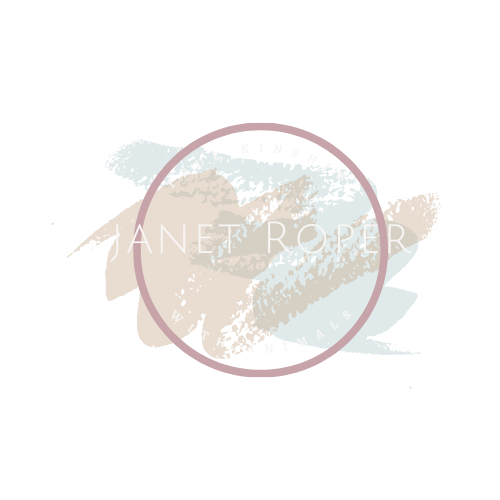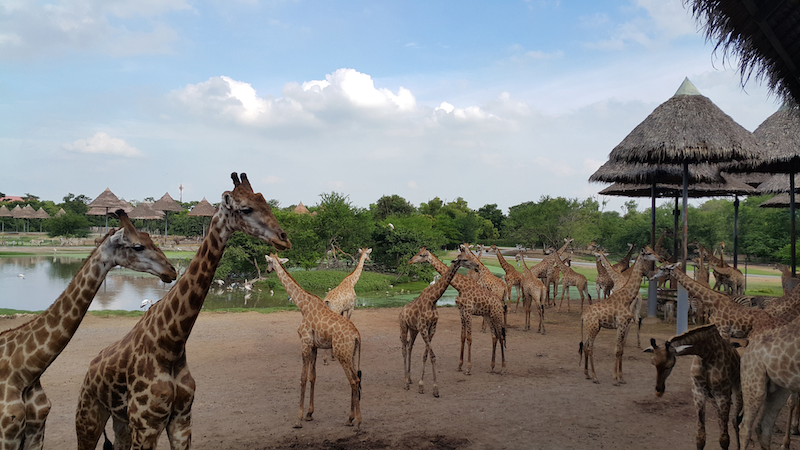Podcast Ep 12: Don’t Jump On The Bandwagon
Originally Published April 24, 2022
Listen: Apple, Podbean, iHeart Radio, Google Podcasts, Amazon Music or your favorite podcast station.
Script
Welcome to True Kinship with Animals, where we believe we all do better when ALL creatures do better. I’m Janet Roper and each week I share stories and suggestions with you on how to deepen your relationship with animals, moving you from ownership to true kinship, one animal at a time.
This podcast is brand new and your help getting it off the ground is much appreciated! If you enjoy this podcast and find my work helpful, if you have been inspired or informed, or have discovered your world has opened to new possibilities because of the podcast, consider supporting my work by making a financial contribution or shopping my wish list. The link is also on the show page for your convenience.
Your support helps this podcast grow and makes my work sustainable.I can't do it without you! Many thanks!
In today’s episode we’re going to go deeper into the topic of love, human entitlement and animals using the egocentric lens. In episode 8, I posed the question “Are we entitled to kinship with animals?”. If you haven’t already heard that episode, I invite you to give it a listen, as it sets a backdrop for this one.
So what I’m wondering….. does our human sense of entitlement clash with our claim of loving animals?
But first…..TikTok
While watching TikTok the other night I ran across a creator who was talking about the Bandwagon Fallacy. It’s also sometimes called the appeal to common belief or appeal to the masses because it’s all about getting people to do or think something because “everyone else is doing it” or “everyone else thinks that”.
Follow along, because I believe you too will see a connection between entitlement, the egocentric lens, the Bandwagon Fallacy and how they manipulate our relationship with animals.
Before we go further, let me add a heads up to this conversation. I KNOW in this episode I am making sweeping statements about our relationship with animals and the world we live in. And I KNOW the conversation around this needs to be highly nuanced. I trust that by starting with these generalizations, minds and ideals will open and lead to more refined and multilayered conversations. But this is a good starting place, for sure.
Because we use a multiplicity of changing lenses, it’s essential to clarify and understand the lens being used. So for the purpose of this episode I am using the egocentric lens to demonstrate how prevalent it is in our society, how it often unknowingly influences our relationship with animals and how we can be oblivious of our own use of it. I’m also speaking as someone who lives in the United States.
Through this lens, humans are seen as separate, dominant and superior to animals. When using this lens animals are denied their agency and seen as commodities. What happens with commodities? They are bought, sold, used and exploited.
This perspective plays heavily into our relationship with animals. And why wouldn’t it? In our culture we’re encouraged to jump on the bandwagon, sooner rather than later. The egocentric lens is the predominant one regarding our relationship with animals. It’s so common we are usually unaware of its presence and unconsciously accept it as the way life is and should be.
In a nutshell, when using this lens, humans have dominion over animals. The unspoken expectation is that humans will abide by that principle and all that’s involved with it. However, the egocentric lens creates division, an us/them duality and demands we work from the view animals are 2nd class citizens. It denies and deprives animals of their agency, leaving no room for true kinship.
The egocentric lens is rooted in colonized settler thinking, which is connected to white supremacy. If you are interested in finding out more about this, you may want to explore the website White Supremacy Culture. Link is in the show notes.
So, how does this show up in our culture and shape our everyday relationship with animals?
First, a short break and then we will dive into that question.
A heartfelt thank you to those who have contributed to the growth of this podcast! Your support, whether financially, liking, sharing or leaving a comment, translates into appreciation of the work I do and how it shows up in the world. This helps me accept the fullness of my dream of true kinship with animals and acknowledges you as a kindred spirit with that dream!
I’m asking you to continue helping me as I carry on sharing this dream with the world at large
If you have ever found my work helpful, if this podcast has inspired or informed you or expanded possibilities in your world, now is the time to help the true kinship with animals dream continue to unfold into reality. Making a financial contribution, shopping my wish list, sharing, liking, or leaving a comment on the show page are deeply appreciated ways to show your continued support. For your convenience, the link to make a financial contribution supporting this podcast is found on the show page.
Thank you for your continued support, kindred spirits!
Welcome back!
Before we move ahead, this is a very good time to remind you to hark back to what I said earlier about generalized statements that will hopefully lead to multilayered, nuanced conversations. Because I’m going general with a capitol G here.
Let’s talk about common places we can easily visit to see and interact with animals in an up close and personal way.
Where To See Animals
zoos
aquariums
shelters
rescues
parks
vacation destinations ie Disney’s Animal Kingdom
fairs and carnivals
towns that offer activities like carriage rides
I wonder if these places exist in part due to the Bandwagon Fallacy, convincing us that because we love animals this is the best way to care for them. Or is our claim of loving animals entangled with the sense of entitlement imposed on us through a culture that in general values people over animals?
In support of these institutions, folx point out programs such as spay and neutering help control pet homelessness, which would otherwise result in more animals being euthanized in the US yearly. Claims are made animals in these institutions motivate humans to engage in and support pro-conservation and pro-humane programs. Folx also say humans gain increased respect for animals because of these places. While the claim is made animals have a longer life span because of these programs, it’s also pointed out it may be a lower quality of life.
If humans had not intervened to begin with, these institutions may not have needed to become so prevalent in our society. Yet I am not judging them. In the world we’ve created they are necessary and many animals are cared for and saved because of them. I’m simply adding another layer of thought to unvoiced consequences they foster.
Now, for some Bandwagon Fallacy at play
In places like zoos and aquariums the animals are put on display in unnatural settings for the convenience of visitors seeing and interacting with them. At the same time we are left with the feeling these places are essential to the long-term survival of many species. The implication is as we learn about them, we are helping to create a better world for them.
Shelters and rescues are places where animals are cared for until they hopefully find their forever homes. At the same time our savior and caretaker lenses may be activated, making us feel guilty if we don’t adopt them.
Vacation destinations like Disney’s Animal Kingdom market themselves as being about animals, learning and fun. According to google, 4.17 million people visited the Animal Kingdom in 2020. It’s not the animals place to entertain us or educate us. This is an example of the animals being used as commodities in making money for a corporation.
I know this is a challenging conversation, yet it’s essential. It’s not an either/or conversation and there’s a heck of a lot of uncharted area that needs to be recognized so it can be addressed. We need to understand cultural lenses that may appear benign at first but actually dictate what our relationship with animals will be. Using the egocentric lens results in the subjugation of animals and robs them of their agency.
It’s time to ask ourselves if we’re jumping on the bandwagon because “my neighbor believes this so it must be true and good for the animals” logic.
True kinship with animals can turn into another offshoot of dominion over animals if we don’t recognize the widespread power of the egocentric lens and the pull of the bandwagon fallacy. It’s time to sit in uncomfortable places, both alone and in community, and discover ways to empower our connection with animals. Conversations where we learn to recognize, honor and respond to an animals agency need room to grow and flourish.
I hope you won’t jump on the bandwagon when it comes to the intersection of your love for animals and those often unconscious feelings of entitlement over animals. The key to avoiding it is thinking about whether the popularity of an opinion robs the animals of their agency.
Becoming Conscious
Become aware of the complexities of being an animal person in today’s society. This is not an easy place to be, for sure!
Claim your own agency where you can. Maybe it’s working with a gentle trainer instead of a trainer that uses harsh methods. Maybe it’s exploring the feelings that are evoked whenever you see one of those “poor helpless animals” ads. When you are coming from your own truth and agency you are saying no to the expectations of our colonized society.
Keep in mind we share the same space as our animal neighbors. Make your area a welcome and safe oasis for them.
So, back to the original question: does our human sense of entitlement clash with our claim of loving animals? At this point in time my answer is yes, it does. HOWEVER, I qualify that yes by saying when we know better we do better. And in my work I daily witness people making effective changes moving towards true kinship.
Will entitlement and love always clash? A big resounding no from me! I have total faith our authentic love and respect for animals will win out in the end. Paraphrasing Prometheus: “Big changes have small beginnings.”
Your support of this podcast with a financial contribution or by shopping my wish list makes my work sustainable and encourages me to keep on going!
Thank you for listening and keep moving toward true kinship! Just for today remember: We all do better when all creatures do better. Until next week, take good care!

